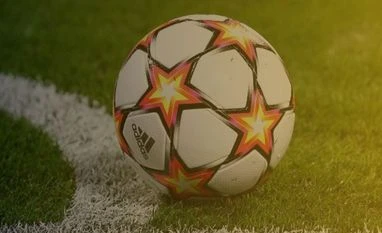As Europe swings into the 2023-24 football season with one month left for the transfer window to close, it’s not just rival clubs but a country far outside Europe’s borders that’s being closely watched: Saudi Arabia. The kingdom, in the throes of its unique version of perestroika, has borrowed the example of regional frenemy Qatar and chosen football as a soft power force multiplier. The upshot has been some headline-grabbing summer signings — among them Cristiano Ronaldo, Karim Benzema, N’Golo Kante, Riyad Mahrez, Roberto Firmino, Sadio Mane, Jordan Henderson — for the Saudi Pro League.
Unlike the US Major League Soccer (MLS) across the Atlantic, a favoured destination for ageing stars such as Lionel Messi (36 years) at the end of their careers, the SPL is different. It is attracting not just waning celebrities such as Ronaldo (38 years), who will combine his prodigious footballing skills with some public relations obligations, or Karim Benzema (35 years) but talents entering the peak of their careers who could have commanded premiums in Europe. There is, for instance, France’s Allan Saint-Maxima, just 26 years, who has exited Newcastle, which is, incidentally, owned by the Saudi’s sovereign wealth Public Investment Fund (PIF), Wolverhampton Rovers’ Portuguese midfielder Rueben Neves, 26, Liverpool’s midfielder Fabinho, 29, and Lazio’s Serbian goalkeeper Sergej Milkinovic-Savic, 26, to name but a few.
The implications of this development for Europe are uncomfortable. SPL is a domestic football league affiliated not to the powerful UEFA, the European football federation that regulates the world’s most popular leagues, but the Asian Football Confederation (AFC). The AFC comprises 47 member associations that are peripheral to world football (Japan, South Korea and Australia being exceptions). It is a benignly neglectful organisation whose members enjoy power and access to football’s biggest events without much responsibility. It demonstrates its utility largely during elections to FIFA’s governing body and bids for World Cup hosting rights. The 18-team SPL, the top tier of Saudi football, is a major beneficiary of AFC’s light-touch regulation. Unlike UEFA, which imposes spending restrictions on clubs under its jurisdiction — English Premier League champions Manchester United are under investigation — the moneyed owners of SPL teams have no such restraints.
Then consider this. The PIF, which draws its wealth from the kingdom’s oil wealth, has controlling stakes in the top four Saudi clubs — Al Nassr, Al Ittihad, Al Ahli and Al Hilal — something UEFA would never allow.
So all told, it’s party time for the world’s footballing talent.
Cristiano Ronaldo’s £173 million per season till mid-2025 is the richest in sports history to date. In contrast Lionel Messi will earn a mere £39 million per season for MLS team Inter Miami, though that’s still among the five highest sports deals. But Al Nassr is paying CR7 for more than his on-field performance. This deal involves payment for image rights and commercial deals plus advocacy for Saudi Arabia’s bid to host the 2030 World Cup.
Compared to that, the rest are earning pennies but still at least four times more than they would have earned in top-flight European clubs. To provide just one example: Brazilian international Fabinho, who has had a decidedly eccentric season on Merseyside, will earn roughly £700,000 a week (£36.4 million per season) compared to the £180,000 a week he would have earned had he stayed with Liverpool till his contract expired in 2026.
It would be easy to write off the SPL as a footballing circus on the lines of the Chinese Super League, which once hired such superstars as Didier Drogba, Carlos Tevez and Oscar on eye-watering salaries. That high-profile experiment imploded by 2020. First, team owners, mainly real estate barons, went bankrupt as the Chinese realty market crashed. Second, the Chinese Football Association, mired in corruption scandals, put a ceiling on the amount clubs could pay for foreign players. Without them, the CSL died an early natural death as the crowds stayed away.
It is also unlikely that the SPL will ever compete with Europe’s leagues in terms of popularity in the foreseeable future. Many footballers in their prime are likely to weigh the short-term benefits of lavish salaries and lifestyles for the long-term impact on the quality of the football they play. French World Cup-winning striker and one of Europe’s hottest properties Kylian Mbappe, 24, reportedly turned down a £603 million offer from Al Hilal in favour of staying in Europe (though it’s unclear where he’s headed).
In the short run, SPL’s impact will lie in its inflationary effect on player salaries in Europe. Naturally, footballers will love this — they only have a short earning window in their careers, after all. But the question is whether money as a determinant of footballing success is good for the game in the long run. The controversial and hastily aborted Super League breakaway tournament proposed in a secretive deal by Europe’s top club owners in 2021 is one example of undesirable outcomes. The upcoming season will clarify that question.
Unlock 30+ premium stories daily hand-picked by our editors, across devices on browser and app.
Pick your 5 favourite companies, get a daily email with all news updates on them.
Full access to our intuitive epaper - clip, save, share articles from any device; newspaper archives from 2006.
Preferential invites to Business Standard events.
Curated newsletters on markets, personal finance, policy & politics, start-ups, technology, and more.
)